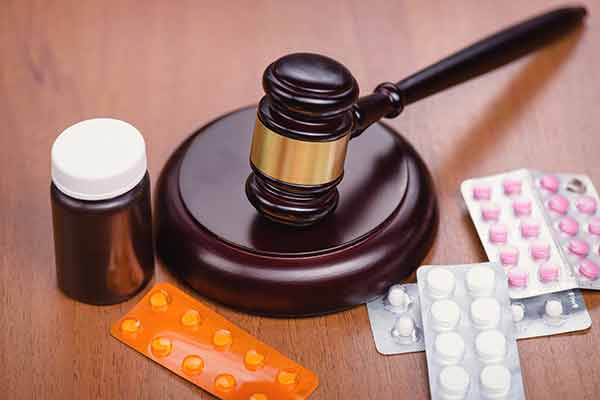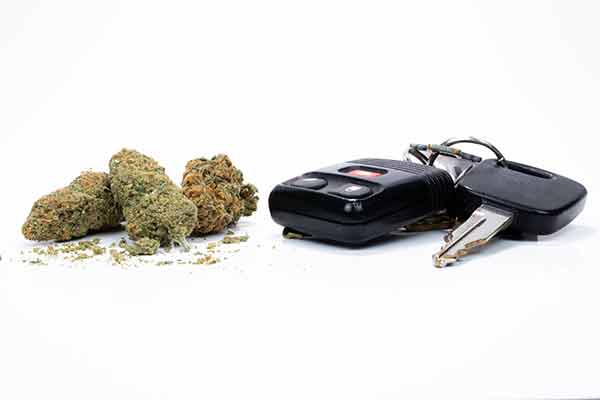Can You Legally Record Police Officers?
11/09/2025
Medical and recreational marijuana became legal in Illinois on January 1st, 2020, making Illinois the 11th state in the United States to legalize and decriminalize the recreational use of marijuana. But just like alcohol, which is legal to inject, the medical and recreational use of marijuana does still face regulations for when and where you can ingest THC. A good rule of thumb for medical or recreational use of marijuana in Illinois is that is you can’t ingest alcohol in a place or while doing an activity, you most likely are not allowed to ingest THC products while doing that activity.
What that means for the average citizen is that, while medical and recreational use of marijuana is legal, you cannot ingest THC products publicly, and you cannot ingest THC products immediately before or during the use of a motorized vehicle, or you can face public intoxication or DUI charges.

While DUI charges are harder to be convicted for based on THC usage over alcohol usage, you can still get a DUI in Illinois for being high while driving, ingesting or smoking THC while driving, and sometimes, for habitual smokers, you can be arrested for a marijuana-related DUI without actually being high at the time of your arrest. If you’ve been stopped and arrested for a marijuana DUI, contact Ktenas Law to speak with an experienced DUI attorney as soon as you can.
If you have a medical marijuana card or are partaking in recreational marijuana in the state of Illinois, it is important to know the best way to transport your marijuana and THC products after purchasing. While marijuana and THC products have been legalized and decriminalized, you can still be arrested for possession with intent if you have too much on your person, as well as for a DUI if those products are open and accessible, the same way you can be arrested for a DUI for having open liquor, wine, or beer containers in your car.
Related Content: Chicago Drug Possession Lawyer
After purchasing marijuana flowers, other THC products, or paraphernalia, keep them inside of their sealed packages until you get home. Keep those sealed purchases inside of the bag given to you by the dispensary, and place that bag either in your trunk, glove compartment, or center console. If you are transporting previously purchased and opened products for any reason, you should follow these same rules. Place them all in a closed container, and then inside of a closed compartment. It is important to make sure they cannot be seen through the windows of your car and easily identified, as this can give cause for police officers to search your vehicle.
As with drunk driving, driving under the influence of marijuana can inhibit your ability to drive properly and safely. Aftereffects of smoking or ingesting THC products include delayed reaction time and lessened physical control, which can make driving while high extremely dangerous. Unlike driving under the influence of alcohol, breathalyzer tests don’t work for testing for THC content, so officers are left to either use field sobriety tests like the walk-and-turn, or use their best judgment for an arrest. If you have open and visible THC products or paraphernalia in your car, you will most likely be arrested for a DUI, even if you aren’t high at the time.

There are other signs of marijuana use, such as blood shot eyes, and the smell of marijuana, that officers can use to make their judgment call on whether or not you’ve been smoking. After your arrest you will have to submit to chemical testing, such as blood or urine testing, to test the levels of THC in your body. These levels of THC do not guarantee that you were high at the time of your arrest, just that you did ingest THC products at some point before your arrest.
Because THC can remain in a person’s system for up to 45 days after last ingestion, especially if you are a habitual user, your THC blood alcohol content can be high. If you have a medical card or a note from your doctor, and habitually use medical marijuana, Illinois gives allows persons with medical cards to have more THC in their system before charging them officially with a DUI. However, if you are a habitual user without a medical card, your blood THC concentration will be just as high as a person with a medical card, but you will not be given the same concentration allowances. Experienced criminal defense attorneys, however, may be able to get your charges dropped if you can prove you are a habitual user and that is why your levels are high.
Unlike with blood alcohol concentration tests and blood alcohol levels in general, having THC in your system does not guarantee that you ingested THC shortly before or while driving, which is where the laws get difficult. This is why your criminal defense attorney should be knowledgeable about marijuana related DUI’s, not just alcohol related DUI’s, for the best outcome of your case.
The legal limit for nanograms of THC in your blood is 5 nanograms, and for saliva or urine the limit is 10 nanograms. A legal limit does not exist for medical card holders, who can only be arrested based on the arresting officer’s observations.
Related Content: First-Time DUI
For a first offense DUI, you will face up to 12-months of mandatory jail time, a $2,500 fine, plus court fees. You will also lose your driving privileges and receive marks on your driving record, as well as marks on your criminal records as DUI’s are criminal charges. If you fail sobriety testing, you will lose your license for 6-months, whereas if you refuse to submit to sobriety testing you will automatically lose your license for a 12-month period. During your license hearing you may be able to apply for an exception to your license suspension if you agree to have a monitoring device placed in your car. For a monitoring device driving permit, which is a restricted driving permit, you will be required to obtain and pay for SR-22 insurance, which is high-risk insurance. Your insurance company will also, most likely, raise your rates.

You may also be required to attend court orders hours of substance abuse treatment and/or hours of community service instead in lieu of spending any days in jail. You will be required to pay for substance abuse treatment out of pocket, and failure to pay for or complete this treatment will turn into a jail sentence. If you are placed on probation and a drug treatment plan, you will have to submit to drug evaluations randomly performed by your parole officer. If you fail any blood tests, chemical tests, or are found to be under the influence of drugs your parole will be revoked and you will be placed under arrest.
If you have been arrested for a suspected marijuana DUI, it is important to hire DUI defense lawyers with experience in this niche field. While they have similar punishments and names, alcohol DUI’s and marijuana DUI’s are extremely different, and choosing the wrong attorney can be detrimental to your case.
At Ktenas Law, we specialize in alcohol and marijuana DUI’s and can help you avoid severe penalties and undue hardship that can be caused by your arrest. Call us today for a free consultation.

